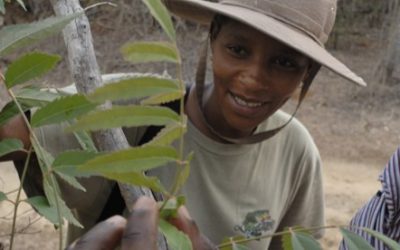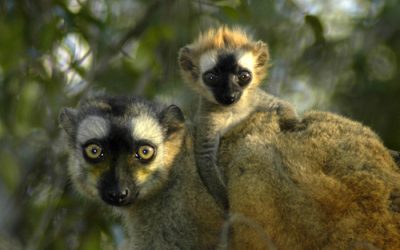Thomas Mkare has found a solution towards conserving Kenya’s seahorses. This entails adopting the citizen science approach where citizens report back when they sight this rear species. This approach is more effective in enhancing Thomas’ work at the Kenya Marine and Fisheries Research Institute (KMFRI) as data will be readily available allowing for the detection of the seahorses.
Thanks to a workshop led by the Tropical Biology Association in October 2019 on citizen science, Thomas’ work takes a leap forward towards protecting this endangered species. The workshop gave Thomas and 17 other African conservation managers from 7 African countries skills to engage citizen scientists and manage their citizen science projects. The training came at just the right moment for conservation managers like Thomas, who with the skills afforded, can now easily train and recruit more citizen scientists for his project.
The workshop was a follow-up to a pioneering workshop held in April 2019 which gave African citizen science managers skills in analyzing and interpreting citizen science data. This time around, participants came back to present their results from applying skills grained on the first workshop. It also offered practical advice on how to motivate and train citizen scientists, and how best to communicate results to influence management and policy.
“Hearing what everyone has done since our first workshop shows the power of citizen science: they have been able to collect really valuable conservation data through engaging people on the ground. They are now coming up with really exciting ways of communicating their results not only to managers but to the people who collected the data –the citizen scientists themselves” says TBA Director Dr Rosie Trevelyan
The participants’ presentations on their citizen science projects confirmed Dr Rosie’s sentiments, illustrating the prominent role that citizen science has imparted in their work.
Cedrick Fogwan from Cameroon explained that “Before attending the first workshop, I had only 20 fishermen working on our citizen science project on conserving sea turtles in Cameroon. But I used the skills from the workshop to train 60 more fishermen. The 80 fishermen are now active citizen scientists, collecting useful data and are ambassadors of marine conservation. The second workshop came at just the right moment as I gained further skills on designing protocols for our project and I realize I need to engage the fishermen at this design stage. I also take home more skills in communicating data and sharing the results with citizen scientists”
Mary Kageni from Kenya added “The first workshop equipped me with hands-on data analysis skills using R software. I already had citizen science data using Kmacho mobile. Using these new skills you gave me, I was able to analyze Karura forest’s environmental trends data that had been collected since 2013. I developed very informative maps and graphs that will be used in Karura forest to enhance its biodiversity conservation. This follow-up workshop has equipped me with these skills I need for communicating my results through publication, and to add to this, I gained knowledge on engaging citizen scientists and I hope to engage more women into this discipline”
New participant Victoria Orok from Nigeria pointed out “This workshop provided me with great skills on how to design clear protocols for my bird mapping project in Nigeria. It also showed me how to communicate and publish my research results as well as how to engage and motivate citizen scientists of all ages in Nigeria”
The learning does not just end with the workshop as the participants formed an active WhatsApp network where they continue to inform conservation by sharing skills and results from their citizen science projects.
The workshop was part of the project Citizen Science in Africa- making it work for conservation, a partnership between the Tropical Biology Association, British Trust for Ornithology, the Zoology Museum at the University of Cambridge, National Museums of Kenya, and the Kenya Bird Map Project. It was funded by the Cambridge Conservation Initiative Collaborative Fund.






